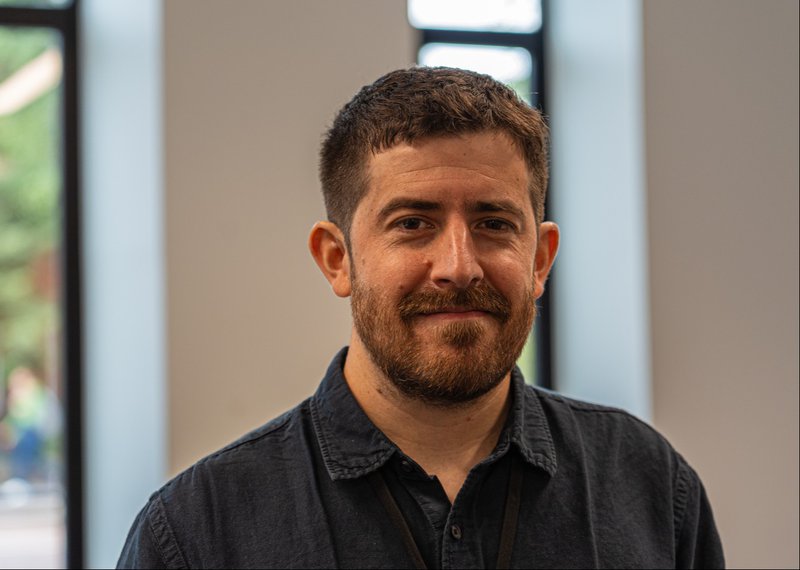
The R User Group at The University of Manchester (R.U.M.) is one of many special interest and user groups in the Computation and Data in Research Teams space. The groups are open to all University researchers, PGR and research supporting staff so why not join over 1200 members from across the University?
How did you hear about the RUM community?
When I joined the University there were very few people in Research IT that used R, so I was quickly roped-in as a helper on R training courses and invited to participate as an organiser of the R User Group (R.U.M.). The group had just been "reanimated" after a long slumber and was looking for fresh blood… before I knew it, I couldn’t get out! I’m joking, it was scary at first, but I’m happy I joined.
What is your role at the University and how does it interact with the RUM community?
I work as a Research Software Engineer in Research IT. A big part of our job is supporting the scripting languages used throughout the university, and R is one of the most popular. That means I get involved in teaching (I run an introductory R course every couple of months), troubleshooting (helping out with Connect tickets, and maintaining a pilot Shiny server), and development projects (mostly refactoring code and writing Shiny apps to make research outputs more FAIR).
How did you get into your domain?
It was a long and winding drift from mechanical engineering, electronics and renewable energy. I started coding more and more until I was doing software development full time.
What does your role in the RUM involve?
I help in organising and managing events, but the idea is that the group reflects the interests of the community, so I try to work as a facilitator and let the group be led by the organising committee.
What would you like to see the RUM doing over the next 12 months?
The R.U.M is a hub for R users at the university, and I'd like to see it aggregate the (currently scattered) resources for learning and support around R. It's not an easy language to learn (or use) and, if nothing else, the R.U.M should make us feel less lonely in our frustration!
More immediately, we'll try to keep the talks coming, hopefully bring back the summer book club, or organize a longer seminar, like we did with "R on CSF" last year.
What do you hope to come out the RUM community?
A lively, engaged community where everyone feels comfortable asking questions and sharing their knowledge — a place where best practices are shared, tricky problems get solved, and people can nerd out about cool R tricks.
How can members of the RUM community support you / get involved?
- Share your discoveries and questions in our chat — found a cool package? Stuck with a weird bug? Let us know!
- Can't be bothered to follow the chat? Join our mailing list
- Fill out our survey — it helps us figure out what people actually want from RUM.
- Give a talk — no topic is too big or too small! What feels routine to you might be mind-blowing to someone else.
- Join the organising committee — It's not much work (I swear), and we’re always happy to have new voices shaping what the R.U.M does.
If you’re interested in the last two points (or if there is anything else you can think of) drop us an email.
What do you enjoy most about RUM?
I learn something new in every event, with every question, and every time I teach a course. It's great to be in touch with people from so many departments and doing so many different things.
Fun fact?
I hated R the first time I tried it. Coming from Matlab and Python, my eyes still hurt every time I type `some$thing <- c(1,2)` instead of `some.thing = [1,2]`. With time I've grown to accept its quirks and love the (other) beautiful features of the language.
Join the R User Group at The University of Manchester (R.U.M.) today to join in the discussion and to be kept up to date with their upcoming events and activities!

